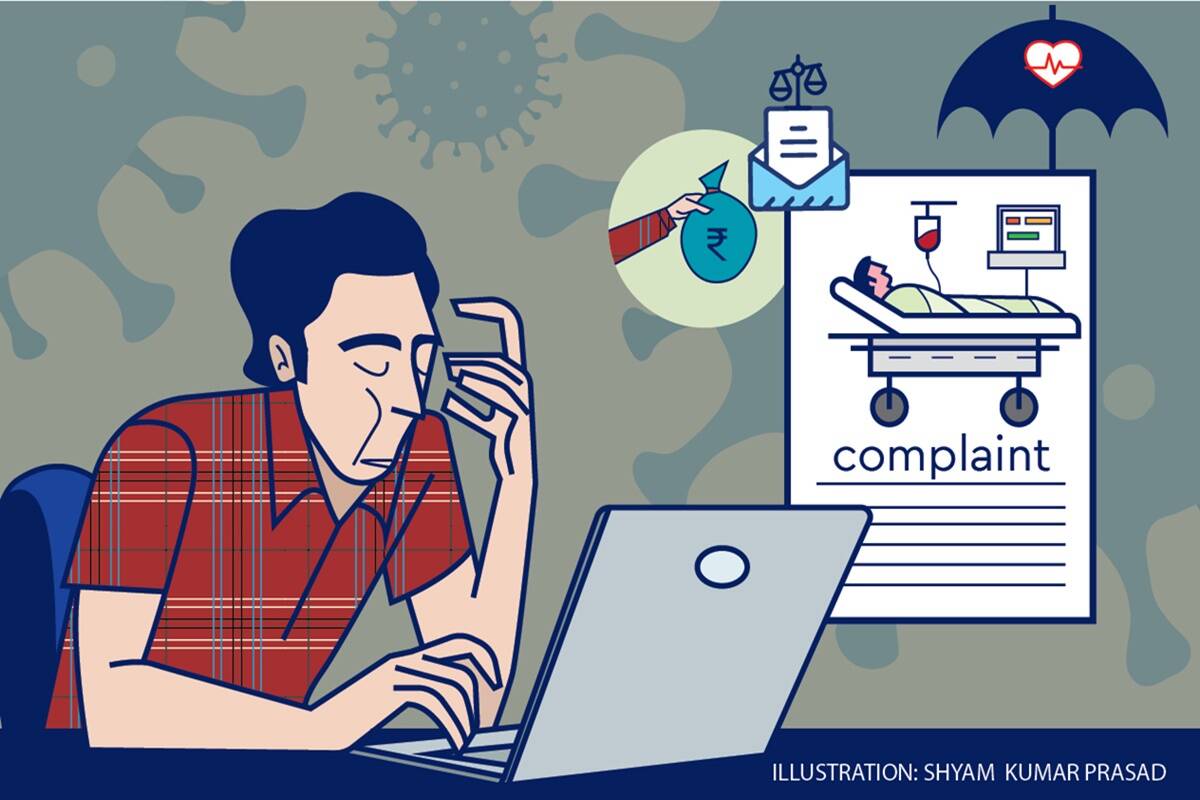Products You May Like

With reports of some hospitals not granting cashless facility and insisting on cash payments from policyholders for treatment of Covid-19 despite policyholders being entitled for cashless facility under their policy, the insurance regulator has directed general and standalone health insurance companies to lodge complaints against such hospitals. Insurers have to report levying of excess charges or denial of cashless facilities to the respective state governments for appropriate action.
The regulator has also directed insurers to ensure availability of cashless facilities with all empanelled network providers by putting in place a continuous communication channel with all the network providers for prompt cashless services and for resolution of grievances of policyholders.
Related News
For cashless treatment, the Insurance Regulatory and Development Authority of India (Irdai) has advised insurers to ensure that policyholders are charged as per the rates agreed to by network providers and also ensure that hospitals do not levy any additional charges for the same treatment other than those rates that are agreed with the insurers. The regulator has directed the insurers to ensure that the reimbursement claims under a health insurance policy must be settled as per the terms and conditions of the respective policy contract expeditiously and issue suitable guidelines on this to all Third Party Administrators (TPAs).
How to raise a complaint
If a hospital denies cashless facility at any enlisted network hospitals the policyholders can send a complaint to the concerned insurance company. The details and email ids of grievance redressal officers of insurance firms can be accessed from the website of the insurers or at https://bit.ly/3vhA1H .
If the policyholder does not receive a response from the insurer within a reasonable period of time or is dissatisfied with the response, it may approach the grievance redressal cell in the consumer affairs department of Irdai. Only complaints from the insured or the claimants shall be entertained. However, the cell does not entertain complaints written on behalf of policyholders by advocates or agents or by any third parties. Complainants will have to submit complete details of the complaint as required in the complaint registration form put on the website https://bit.ly/3vdPJTS.
Insurance ombudsman
The ombudsman acts as a counsellor and mediator and arrives at a fair recommendation based on the facts of the dispute. Insurance companies provide contact details of the insurance ombudsman in every policy document issued by them. Recently, the government had amended the Insurance Ombudsman Rules, 2017 to facilitate resolution of complaints regarding deficiencies in insurance services in a timely, cost-effective and impartial manner. Policyholders can make complaints electronically to the ombudsman and can track the status of their complaints online. The ombudsman accepts complaints regarding delay in settlement of claims, partial or total repudiation of claims by any life, general and health insurer, disputes over premium and misrepresentation of policy terms and conditions in the policy document or policy contract. Policyholders have to provide supporting documents and mention the name of the branch or office of the insurer against whom the complaint is made.
The complaint has to be filed within one year of the insurer’s order rejecting the representative’s claim is received. The insurer has to comply with the ombudsman’s decision within 30 days from the date of receipt. If the policyholder does not accept the decision, he can then approach the consumer forum. If the policyholder accepts the decision of the ombudsman, it will inform the company which will comply with the terms.
The award passed by the insurance ombudsman is binding on the insurer. However, at times courts have allowed appeals by insurers on the orders passed by the ombudsman in exercise of their constitutional powers. Each ombudsman can redress customer grievances in respect of insurance contracts on personal lines where the compensation sought is less than Rs 30 lakh.
Do you know What is ? FE Knowledge Desk explains each of these and more in detail at Financial Express Explained. Also get Live BSE/NSE Stock Prices, latest NAV of Mutual Funds, Best equity funds, Top Gainers, Top Losers on Financial Express. Dont forget to try our free Income Tax Calculator tool.
Financial Express is now on Telegram. Click here to join our channel and stay updated with the latest Biz news and updates.
